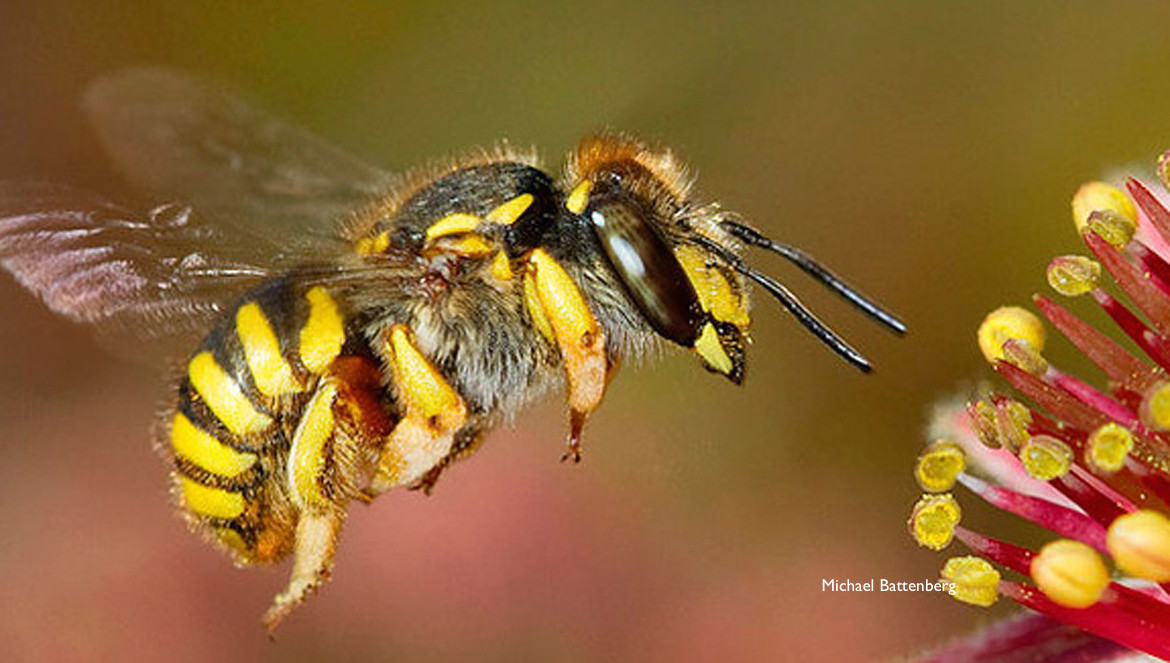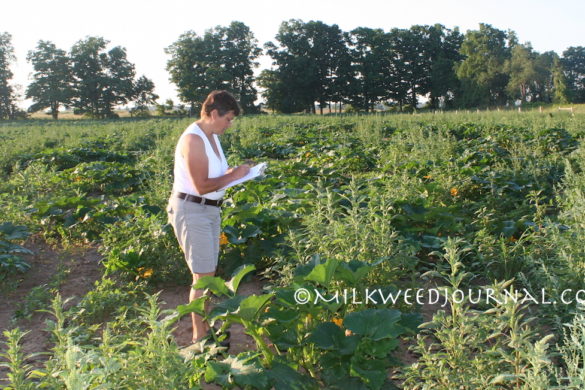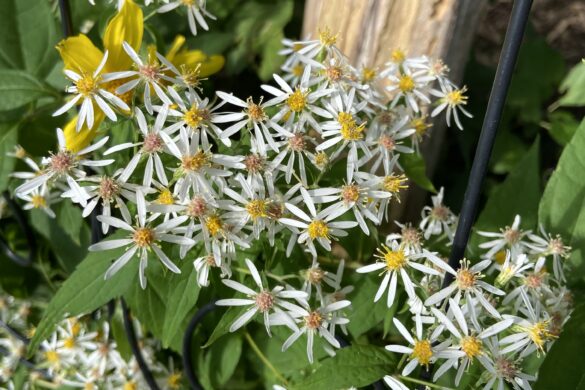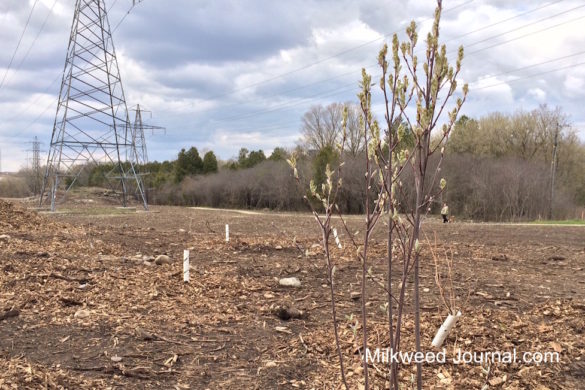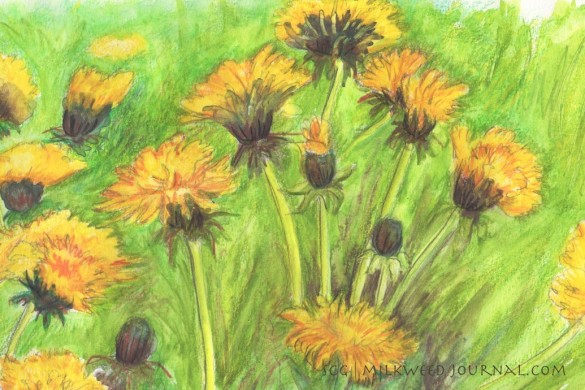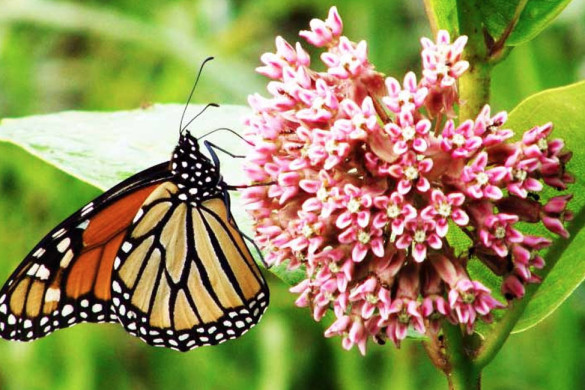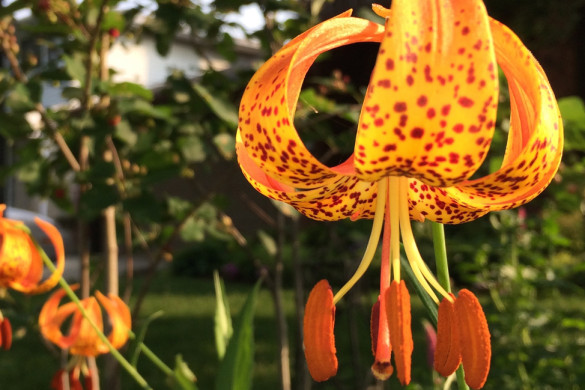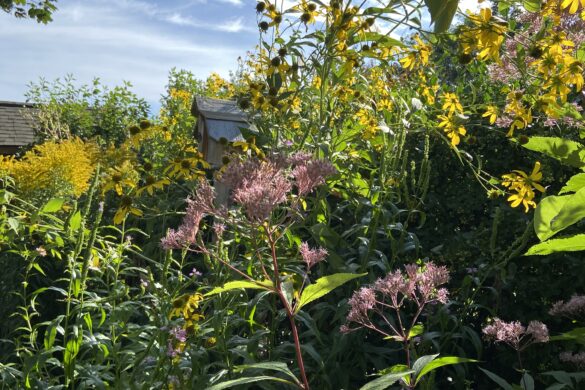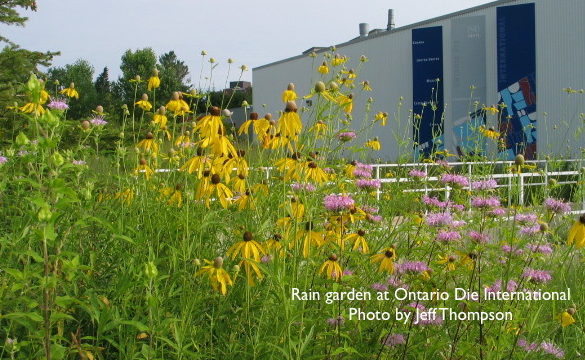U.S.-based landscape designer and author Heather Holm will deliver a keynote presentation on Attracting Pollinators and Beneficial Insects with Native Plants at Pollination Guelph’s 9th annual symposium April 2.
Holm is the author of the beautifully illustrated book Pollinators of Native Plants, which details the relationships between more than 65 perennial native plants and pollinators across southern Canada and the northeast, Great Lakes and Midwest regions of the United States.
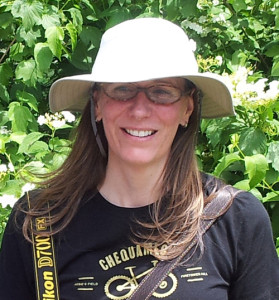
Heather Holm
A graduate of the University of Guelph, Holm first studied natural resources management and then became interested in horticulture, switching programs to earn an Associates Diploma in Horticulture in 1995 and a Bachelor of Science degree in biological sciences in 1998.
Now based in Minnetonka, Minnesota, Holm specializes in pollinator landscapes and native landscape restorations in the Great Lakes and Mid-Atlantic regions.
She is currently working with Karl Foord of the University of Minnesota on a three-year study to determine the types of native bees that are present in cultivated blueberry farms in Minnesota and Wisconsin, and to develop strategies to enhance and expand nesting sites within the farms.
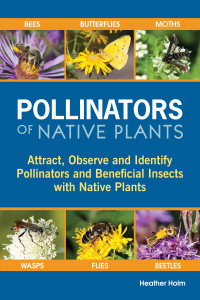 The research to date has shown that bumble bees and mining bees (Andrena spp.) are “the best candidates” as potential blueberry pollinators, Holm says. “This season we will be sampling bees visiting blueberry flowers and will continue to monitor the farms for nests and secondary forage opportunities. We will be making forage recommendations – for additional pre- and post-blueberry-bloom forage – for the growers in year three, based upon the best bee candidates, the site conditions at each farm, and existing forage.”
The research to date has shown that bumble bees and mining bees (Andrena spp.) are “the best candidates” as potential blueberry pollinators, Holm says. “This season we will be sampling bees visiting blueberry flowers and will continue to monitor the farms for nests and secondary forage opportunities. We will be making forage recommendations – for additional pre- and post-blueberry-bloom forage – for the growers in year three, based upon the best bee candidates, the site conditions at each farm, and existing forage.”
The Pollination Guelph symposium will also feature updates on research initiatives, regional pollination activities and a panel presentation on the monarch butterfly.
University of Guelph environmental sciences professor Nigel Raine, who holds the Rebanks Family Chair in Pollinator Conservation, will give a presentation about pesticide impact on bees.
The event will conclude with a panel discussion about monarch butterflies. See the full schedule.
“It is designed for everyone who is interested in preserving our natural heritage and supporting the needs of pollinators,” says Clare Irwin, co-chair of Pollination Guelph.
For more information on the Pollination Guelph Symposium please visit: www.pollinationguelph.ca/

